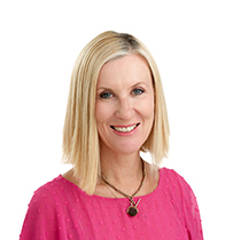16/03/2022
Speaking out to challenge bias, mentoring, flexibility and improving understanding of female health issues are key to supporting women at work, according to a group of senior female leaders who took part in Bevan Brittan’s International Women’s Day webinar.
The theme of International Women’s Day 2022 is ‘Break the Bias’ and senior women from the fields of construction, higher education, housing, local government and law discussed issues affecting women at work at Bevan Brittan’s panel discussion on Monday 7 March, which you can watch below.
Breaking the bias
Chaired by Bevan Brittan Partner, Judith Hopper, the panel discussed their personal experiences of bias. Lydia Devenny, Director of Finance at the University of Huddersfield, started her career in male-dominated industries including rail and IT. She says: “I look back and think about some comments people made about me early in my career. I would definitely call it out now. Bias exists everywhere and women often have to deal with double standards.”
Thelma Stober, Head of Legal Services at the Local Government Association, grew up in Sierra Leone and was determined to achieve success from a young age. “When I grew up, girls were directed to be nurses, teachers or seamstresses, but I knew from a young age that I wanted to work in the legal profession. I knew I had to start at the bottom but I always had my sights on the top.”
Thelma has faced bias because of her gender and ethnicity. “When I was head of legal services at Hackney Council, I attended a meeting with private developers from big city firms. The senior partner assumed I was there to take notes. When I stood up to introduce myself and tell him I would lead the meeting, the colour drained from his face.
“I have never been afraid to speak up. Often, I’m a lonely voice, but that doesn’t matter. What matters is that people know they have said or done something that is not right.”
The Importance of mentoring
Bevan Brittan’s Senior Partner, Jodie Sinclair, highlighted the importance of peer support. “I was the first person in my family to go to university and like many people have suffered from imposter syndrome. Peer support has been really important throughout my career and I still rely on a network of peers, both in Bevan Brittan and from other organisations.”
The panellists also discussed the significance of role models, both male and female. Tabitha Kassem, Executive Director of Governance, Technology & Transformation at Network Homes Limited, says: “In my career, I’ve found informal role models to be as important as formal mentors.”
“Informal mentors are vital and can often speak out to challenge things. My first breakthrough came with the support of a male manager, who promoted me and gave me confidence to take that step. A great mentor will take time to listen and understand.”
Helen Bentley, Regional Managing Director of Driver Trett, also praised the male mentors who supported her progression in the construction industry by encouraging her to do the best she could and, on occasion, standing up for her as well. “A client my firm was working for told my boss there was no way he wanted a young woman on-site, supervising a contractor. My boss told him that I was more than suitable and was the right person for the job.”
Driving change
The panel discussed how their organisations were ensuring equal opportunities and supporting more women into leadership roles. Tabitha explained Network Homes’ leadership programme – a 12-month programme including 1-2-1 coaching and support from in-house and external experts. “The programme is already having an impact. In the social housing sector, there is still a way to go to encourage more women into leadership, but programmes like ours are a great start. We are learning that they also need to link to a succession plan, so women feel there are opportunities to move into.”
The Local Government Association is also tackling diversity and inclusion and is working with Birmingham University on a scheme to develop women within local government to reach director and chief executive level.
“I’m a survivor of the 7/7 bombings in London. I was told I may not walk again, but I did. When it comes to making progress on diversity and inclusion, I know that if we take one step forward every day we will make progress,” says Thelma.
Supporting women’s health
Women’s health issues can create barriers at work. The panel discussed how employers can do more to support women at different life stages including pregnancy and menopause.
“From my experience, once I told people I was pregnant, there was a shift in behaviour. I also found the legal rights I was entitled to were poorly understood and I had to fight for what I was entitled to,” says Lydia. “As I approach the next phase of my life, I can see that menopause is often poorly understood. It makes commercial sense to support women through menopause, as losing experienced women from the workforce is a big loss.”
Jodie added: “Society is changing, and we are becoming more open. There is an opportunity for employers to embrace this. At Bevan Brittan we have a number of employee networks, including a men’s mental health network, support groups for parents of children with special educational needs and a menopause support network.”
Final observations
Rounding off the discussion, Bevan Brittan’s Jodie said: “Everyone’s experience is unique. There is no right or wrong way to manage your career, but networks, mentors and peer support are hugely important at all levels.
“My message to other women is to step out of your comfort zone, challenge, ask questions and keep learning. And most of all, believe in yourself.”




